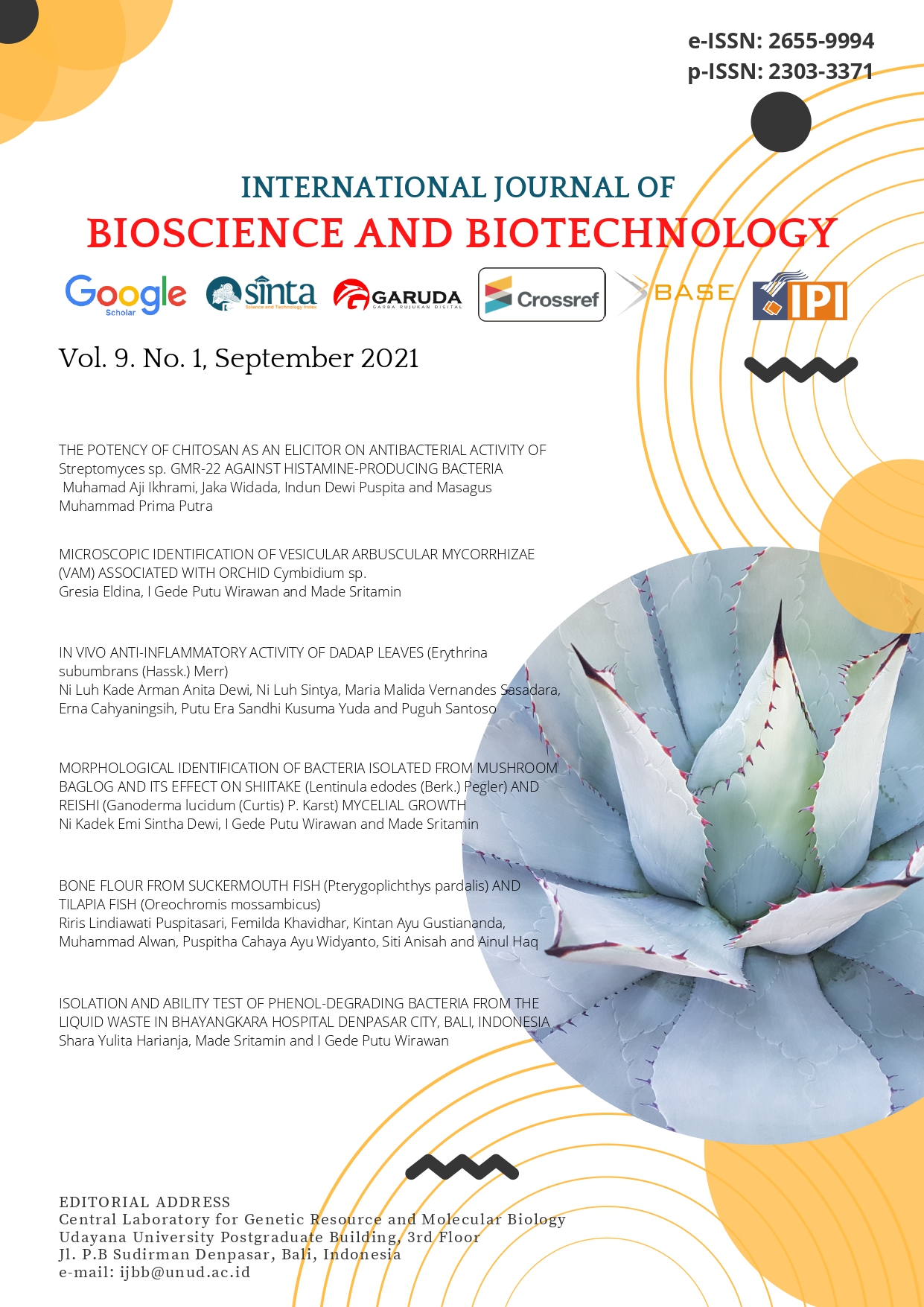ISOLATION AND ABILITY TEST OF PHENOL-DEGRADING BACTERIA FROM THE LIQUID WASTE IN BHAYANGKARA HOSPITAL, DENPASAR CITY, BALI, INDONESIA
Abstract
Phenol is an organic compound that is toxic to humans and the environment. This compound was contained in the hospital liquid waste and petrochemical-based industrial sectors. This study aims to obtain hydrocarbonoclastic bacterial isolates that act as biodegradation agent in waste handling. Samples obtained from the biofilter tank of liquid waste treatment Bhayangkara Hospital Denpasar,Bali, Indonesia then carried out isolation and inoculation of bacteria in selective media NA (Nutrient Agar) containing Phenol. The bacteria obtained was performed the viability test on the media with various Phenol concentration levels, obtained three isolates of bacteria capable of growing to the concentration Phenol 500 mg / L, i.e. isolates IB2, IB5, and IB10. Therefore, it was performed the degradation ability and rate test on those three isolates. After 72 hours of incubation periods, the change of Phenol concentrations was analyzed using the folinciocalteau method and examined using the spectrophotometer with 660 nm of wavelength. Based on the analysis of final phenol content, the IB2 isolate has the highest degradation capability in the concentration of 600 mg/L (153,4 mg) with a degradation rate of 2,13 mg/h. IB5 isolates have the highest degradation capability in the concentrations of 700 mg/L (109,45 mg) with a degradation rate of 1,52 mg/h. Meanwhile, IB10 isolates show the lowest ability and degradation rate in both concentrations. Through morphological identification and Gram stain, three isolates belong to the Gram-negative rod-shaped bacteria, which has similarities with the Pseudomonas genus.






